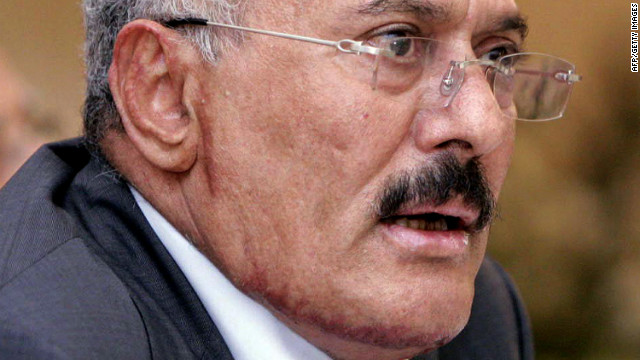By Carolyn Abdenour
Impunity Watch Reporter, Middle East
SANAA, Yemen – On Monday, thousands of protestors gathered throughout Yemen to rally against the approved draft of a law to provide immunity to President Ali Abdullah Saleh and his aides from prosecution. The bill received approval from the Yemeni cabinet on Sunday, and the parliament is expected to approve it within days.

If the parliament passes the law without changes, Saleh and his officials from his 33-year rule will receive immunity from prosecution once Salah resigns on February 21. Spokesperson for the opposition Joint Meeting Parties (“JMP”) Ghaleb al-Odaini projects the lawmakers will amend the proposed deal brokered by the Gulf Cooperation Council last month before codifying the law.
The deal granted Saleh immunity if he gave political power to Vice President Abdu Rabu Hadi. Diplomats commented that Saleh would not resign if he did not receive immunity. Yemenis suspect Saleh of trying to break the deal and remain in power.
If Saleh receives immunity, he will not be tried for the over 200 deaths of protestors during crackdowns in the Yemen uprising.
People protested holding pictures of Saleh with bloody hands holding a butcher knife while asking their country to try Saleh. In the capital Sanaa, Protestor Abdel-Hadi al-Azazi said the law “helped the leader of a criminal gang escape legal punishment.” At a rally in Taizz, Saleh’s loyal forces opened fire on the demonstrators killing two people and critically injuring several others. Protests continued Friday where security forces opened fire in Aden and killed at least four protesters.
However, some people welcome the bill. Youth activist Abdullah al-Kuraimi said, “We are against the immunity bill, but it will play a big role in ending the Saleh family rule in Yemen and give us a change to build a new nation.” Prime Minister Mohammed Bosendowah added, “We granted President Saleh immunity to rid the country from a civil war or possible bloodshed.”
Amnesty International’s interim director for the Middle East and North Africa Philip Luther asserted the law is “a smack in the face for justice.” Navi Pillay, the United Nations High Commission for Human Rights, added Saleh’s guarantee of immunity from accused gross human rights violations or war crimes may violate international law.
The broad immunity from prosecution poses the question: Do suspected war crime and corrupt officials receive a pass for their actions, or do countries need to sacrifice prosecution of these people to move forward?
For further information, please see:
The San Francisco Chronicle – World: News Of The Day From Across The Globe – 14 Jan 2012
The Guardian – United States Defends Immunity Law for Yemeni President Saleh – 10 Jan 2012
CNN – Yemen Cabinet Approves Amnesty Law For Saleh – 9 Jan 2012
Press TV – Two Yemeni Protesters Killed In Taizz – 9 Jan 2012
The Associated Press – Yemen Immunity Law Sparks Debate Over Past Crimes – 9 Jan 2012